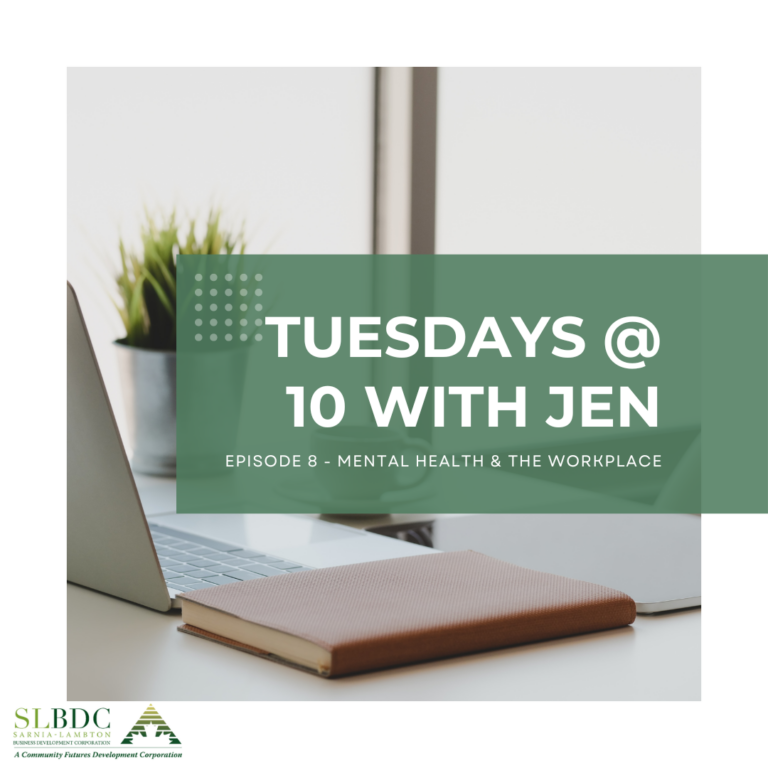
“Anything that’s human is mentionable, and anything that is mentionable can be more manageable. When we can talk about our feelings, they become less overwhelming, less upsetting, and less scary.” — Fred Rogers
It’s too bad Mr. Rogers isn’t here anymore to coach us through our daily lives as this quote is very reflective of our current day and our situation in our Canadian homes and workplaces. The Canadian Mental Health Association hosts Mental Health Week, every year, in May. This is a time encouraged to celebrate, protect, and promote mental health across Canada. The initiative calls all Canadian workers, and beyond, to embrace our emotions, even the difficult ones, as we deal with our “new normal” post pandemic.
The statistics are alarming…
- 1 in 5 Canadian are experiencing symptoms of depression, anxiety and post traumatic stress disorder
- 68% who reported a mental health issue reported that their mental health issue has worsened since the pandemic
- 30% of disability claims are related to mental health illness.
Employers and human resource departments have an important role safeguarding employees and addressing their mental health concerns. Creating a psychologically safe and supportive workplace isn’t merely the proper thing to do, but the best legal, business and health practice for businesses.
More than half of the global workforce works in an informal economy where there is no regulatory protection for employee health and safety, where these employees are working in unsafe working environments, work long hours, have little or no access to social and financial protections and face discrimination, all of which can undermine mental health.
Here in Canada, only 23% of Canadians feel comfortable approaching their employer with their mental health concerns, when we have access to supports, unlike some of our global counterparts and Canadian businesses are losing $6 billion annually (2021) due to mental health; and this was before the pandemic, so there numbers surely are now higher.
Risks to mental health at work can lead to:
- under-use of skills or being under-skilled for work;
- excessive workloads or work pace, understaffing;
- long, unsocial or inflexible hours;
- lack of control over job design or workload;
- unsafe or poor physical working conditions;
- organizational culture that enables negative behaviours;
- limited support from colleagues or authoritarian supervision;
- violence, harassment or bullying;
- discrimination and exclusion;
- unclear job role;
- under- or over-promotion;
- job insecurity, inadequate pay, or poor investment in career development; and
- conflicting home/work demands.
- experience burnout
A research study commissioned by Workplace Strategies for Mental Health in December 2021 revealed more startling statistics after measuring a wide range of factors to how employees feel at work: “The number of Canadians reporting burnout is cause for concern,” said Mary Ann Baynton, Director of Collaboration and Strategy, Workplace Strategies for Mental Health. “For so many of us, anxiety and exhaustion are at an all-time high.”
Five industries showed burnout rates above the national average of 35 per cent:
- Health and patient care (53 per cent)
- Transportation (40 per cent)
- Finance, legal and insurance (39 per cent)
- Education and childcare (38 per cent)
- First responders (36 per cent)
According to the study, few working Canadians feel they are receiving enough support from their employer, with only a third of respondents indicating their company is committed to a low stress environment. “We’re troubled about the many respondents who singled out the lack of psychological supports at work,” said Michael Cooper, Vice-President, Mental Health Research Canada.
People with severe mental health conditions are more likely to be excluded from employment, and when in employment are more likely to experience inequality at work.
Canadian workplaces need to reduce the stigma surrounding mental health in the workplace. What is a stigma? It is defined as negative attitudes, beliefs, or behaviours about or toward an individual or group of people because of a characteristic they share. Stigma can include stereotypes, prejudice, and discrimination.
This negative attitude towards mental health can affect our attitude and behaviour towards people experiencing mental health issues, the workplace policies we make, and the quality of support we provide. Stigma and the fear of discrimination can also create barriers to appropriate diagnosis and treatment.
Stigma is damaging to the employee and the work environment they work in. For the employee, this can lead to negative experiences at work, low self-esteem, discrimination, and fear of disclosing mental health issues and seeking treatment, either at work or outside of work. For the workplace, stigma can lead to staff reporting to work unwell and absenteeism, reduced productivity and engagement, difficulty attracting and retaining talent, difficulty implementing psychological health and safety initiatives, and increased costs related to mental health injuries and illnesses. – this is where the loss of $6 million in the workplace occurs as a result of mental health issues.
How can Canadian workplaces do better? Government bodies, Canadian employers, the organizations which represent workers and employers, and other stakeholders responsible for workers’ health and safety can help to improve mental health at work:
- By preventing work-related mental health conditions by preventing the risks to mental health at work;
- By protecting and promoting mental health at work;
- By supporting workers with mental health conditions to participate and thrive in work; and
- By creating an enabling environment for change.
There needs to be more action to address mental health at work and this can be accomplished with the meaningful involvement of all workers and their representatives, at all levels, along with persons with lived experience of mental health conditions. We need to reflect and act like Christopher Robin with Winnie the Pooh, and take care of each other,
“Promise me you’ll always remember — you’re braver than you believe, and stronger than you seem, and smarter than you think.”
REFERENCES
- These 35 Mental Health Quotes of The Day Are Worth Reading (totalwellnesshealth.com)
- Mental Health in the Workplace – HRPA
- Mental health in the workplace – Canada.ca
- Mental health at work (who.int)
- New research shows more than a third of all Canadians reporting burnout (canadalife.com)
- CCOHS: Mental health – Recognizing and Addressing Stigma at Work


